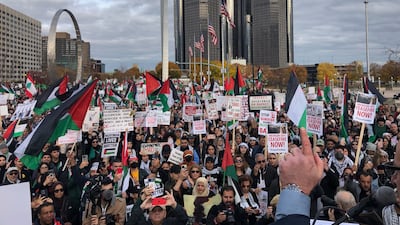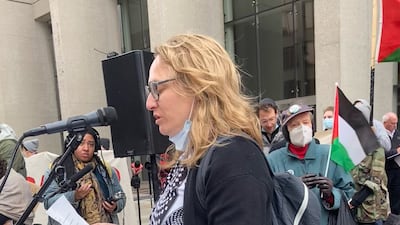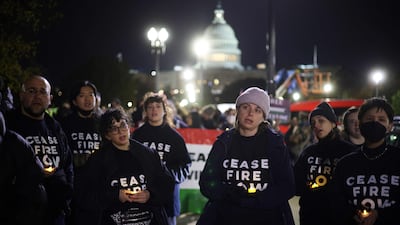Almost two months into the Israel-Gaza war and it is clear that it is being fought not only on a battlefield but over the very terms that can be used to speak about it.
Pope Francis discovered this last week when he described what was unfolding in Gaza as “going beyond war, this is terrorism”, and reportedly noted that “terrorism should not be used to justify terror”. According to some Palestinians who met Pope Francis before he made his public comments, he spoke about the absence of water, fuel and medicine in Gaza, allegedly referring to what was taking place as “genocide”.
Some Jewish organisations roundly condemned the Pope’s words, accusing him of a “blood libel” against the Jewish people. They demanded retraction or clarification, with some questioning the value of years of Christian-Jewish dialogue. One might reasonably be inclined to question what criticism of Israel’s behaviour in Gaza has to do with the dialogue between two religious traditions, but we’re not dealing with reason. This is about power and the use of power to insist on the definition of words.
For decades now, some of the major Jewish organisations have sought to define criticism of Israel as anti-Semitism. With the conflict in Gaza, that effort is in full swing.

Before turning to more recent additions to what are now being insisted upon as acceptable definitions of terms, it’s worth looking at a few past examples.
Let’s start with the line “undivided Jerusalem is the ‘eternal capital of Israel’”. It seems fair enough in a theological sense but adding “undivided” into the mix complicates the matter. In 1968, Israel annexed 28 Palestinian villages to the north, east and south of Jerusalem, unilaterally defining it as “Greater Jerusalem” and demanding recognition of this, in its entirety, as its undivided capital.
Many Israelis insist that the Nakba never occurred, and that Palestinians were not expelled. They say that Palestinians willingly complied with Arab leaders’ demand that they leave to be out of harm’s way when Arab armies attacked Israel – a complete fabrication. In any case, Israelis insist that what ultimately occurred was a simple “population transfer” – with Jews leaving Arab countries to settle in Israel and Arabs leaving Palestine to settle in Arab states.
Then there is “Israel has a right to exist”. It does exist, and Palestinian leadership (Hamas excepted) have recognised it. What Palestinians question isn’t Israel’s existence. What they balk at is the demand that they recognise Israel as it defines itself: “a state in which only the Jewish people have the right to self-determination”.
Terms that may not be used include “apartheid”, “ethnic cleansing” and even “occupation”. But the first two are well-defined in international law.
“Apartheid” refers to a system of governance in which the controlling power has two sets of laws and practice that privilege one group over another. That Israel has ruled over Palestinians in this manner has been argued even by Israeli human rights groups.
“Ethnic cleansing” involves the forceable displacement of one subordinate group to serve the purposes of the dominant group. Israel’s critics argue this is precisely what has been going on for decades, citing illegal settlements as recent evidence. However, Israelis will push back on this assertion, insisting they are acting in “self-defence” on occupied land.
“Occupation” should be the least controversial term, but it is not. Israel insists either that the territories occupied in 1967 are their biblical inheritance or that no one has any legitimate claim to them and that, therefore, the areas in question are at best “disputed territories”. It is worth noting that neither the Democratic nor Republican parties in the US have ever allowed use of the word “occupation” to appear in their platforms.
These are only a few of the examples the meaning of terms that supporters of Israel have insisted be accepted. The conflict in Gaza has added more.
According to some pro-Israel groups, as Pope Francis has learnt, it is unacceptable to use the terms “genocide” or “terrorism” to describe what Israel is doing in Gaza – including the indiscriminate bombing of heavily populated areas, the mass dislocation of 1.5 million people and denying the population water, fuel, power and medicine for prolonged periods.
These groups not only insist on dictating the definition and usage of these words, they also accuse those who use them of anti-Semitism – which brings us back to where this discussion began.
As Pope Francis made clear, it is both necessary and correct to demonstrate compassion and concern for the safety and security of Israelis and Palestinians who are at risk in this deadly conflict. And it is equally correct to condemn both what Hamas has done to target civilians and what Israel is doing to bomb Gaza.
For both Israelis and Palestinians to find a future in which both live and prosper, it is imperative to break through the stranglehold of imposed definitions and demand peace with justice.











